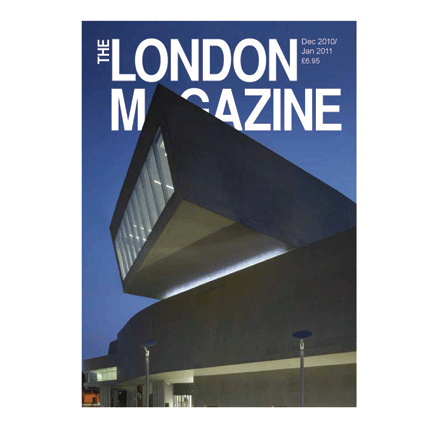The Blagger's Guide To...The London Magazine
All you need to know about the hottest literary topic of the week

'The editor was shot and killed in a duel'
The UK's oldest literary magazine officially relaunches tomorrow with a glittering reception at the House of Commons which enticingly promises a barrowful of bookish great and good.
The magazine was founded in 1732 as an alternative to the new, Tory-sympathising The Gentleman's Magazine (the first regular employer of Samuel Johnson). In the 18th century, The London Magazine published work by Wordsworth, Shelley, Hazlitt and Keats.
An early contributor was James Boswell, who wrote under the nom de plume "The Hypochondriack". The only cure he had found for his hypochondria, he said, was writing – which was fortunate for the rest of us.
Its first revival, in 1820, got off to an impressive start. In September 1821 it published the first two instalments of Thomas De Quincy's Confessions of an English Opium Eater. Unfortunately, its editor John Scott was then shot and killed in a duel. He had fallen out with the editor of a competitor, Blackwood's Magazine, about its criticism of the Cockney School of poetry, which puts today's literary feuds into context. The Blagger will now think twice before confronting rival literary editors over their coverage of the vampire fiction school of writing for teens.
Later contributors included Charles Lamb, Leigh Hunt, and Thomas Carlyle, then TS Eliot, WH Auden, Evelyn Waugh, William Burroughs, Harold Pinter, Ted Hughes, Sylvia Plath, Les Murray, and Paul Muldoon, and more recently still, William Boyd, Nadine Gordimer, and Derek Walcott.
When it was relaunched again in 1954, TS Eliot recommended it as "a magazine that will boldly assume the existence of a public interested in serious literature." In the first issue, Louis MacNeice published his "Canto In Memoriam Dylan Thomas", and Henry Green reviewed the diaries of Virginia Woolf.
The novelist William Boyd has described visiting the magazine's "small, cramped offices" in 1978 to deliver a short story for publication to its editor, Alan Ross. "[It] was a revelation for me. Books everywhere, of course, but there were two dogs sprawled under his desk, and big vivid modern art on the walls."
The magazine was most recently saved when it was bought by the Iraqi-born businessman and member of the Royal Society, Dr Burhan al-Chalabi, after a cut in its Arts Council grant threatened to stop the presses. Other acts of philanthropy by Dr al-Chalabi include donating to Michael Portillo's 2001 leadership bid. He hopes to persuade the Archbishop of Canterbury, David Davis, and Terry Waite to become regular contributors.
The magazine's new editor, Steven O'Brien, a poet and academic at the University of Portsmouth, hopes that the magazine will be a passionate (but not as passionate as John Scott) advocate of literature and literacy. It will be "eclectic in taste, promiscuously interested and unapologetically intelligent", he tells us.
The magazine is published six times a year and can be bought from select bookshops and at its website. Until the end of February, IoS readers can buy a year's subscription at a 25 per cent discount – that's £24.75 instead of £33 - at www.thelondonmagazine.org.
Join our commenting forum
Join thought-provoking conversations, follow other Independent readers and see their replies
Comments
Bookmark popover
Removed from bookmarks